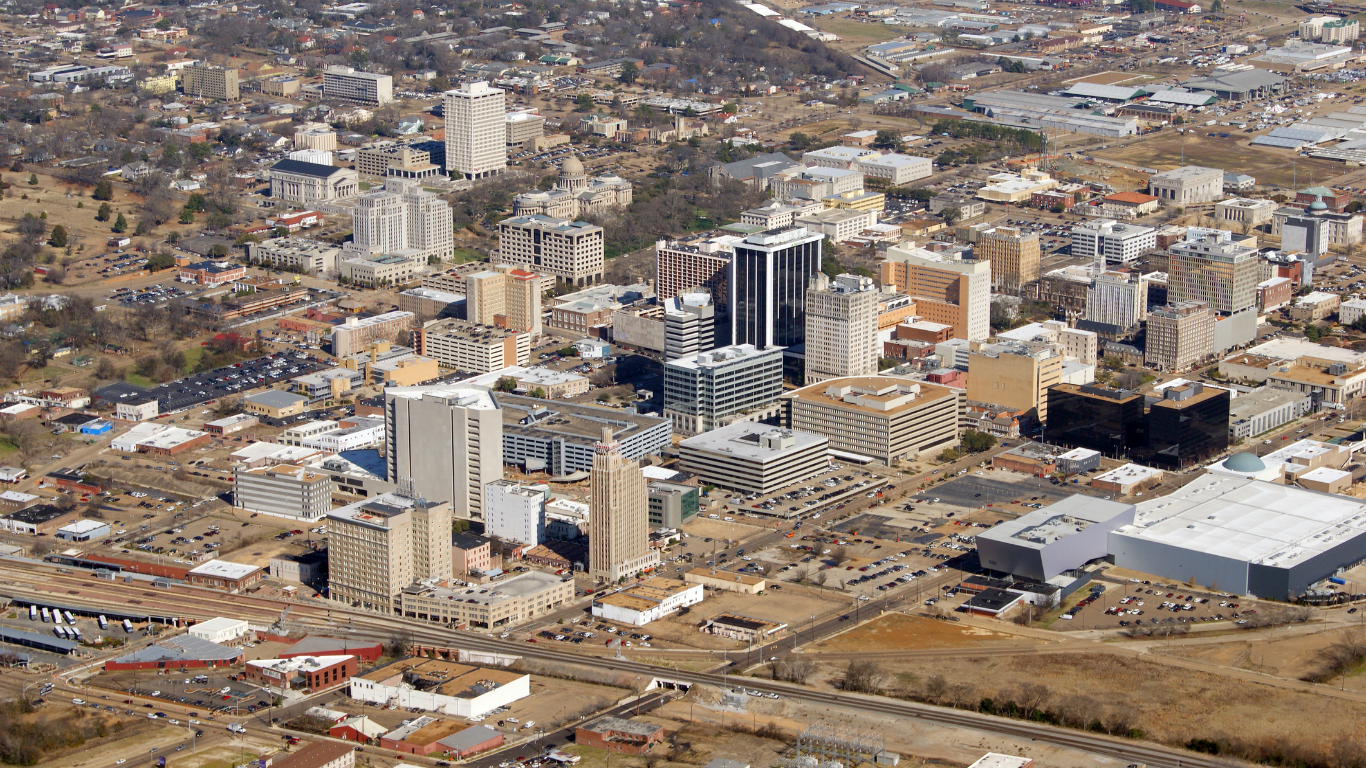Housing
This Southern City Has the Most Homeless Students in America

Published:
Last Updated:

A surprising number of the homeless in America are full-time students, mostly under the age of 18, forced to balance the difficulties of daily existence on the streets with the challenges of schoolwork and social interactions with their peers. Their numbers are particularly large in parts of the South, the Northeast, and the Midwest.
It’s impossible to compute exactly how many homeless people there are in the country at any given time, due to the fluidity of the homeless population (many alternate between different kinds of non-permanent housing, and many migrate from place to place making a precise count impractical). In 2017, the U.S. Department of Housing and Urban Development estimated that on a single night that year some 533,742 people were without a home.
Using data from the U.S. Department of Education, a blog published by the River Oaks addiction treatment facility in Riverview, Florida — noting that homeless students are two to three times more prone to substance abuse than those with regular housing — computed which American cities had the highest and lowest rates of homeless student populations.
The dubious honor of first place on the roster of most homeless students went to Jackson, Mississippi, the state capital, with 2,615 rootless scholars per 100,000 total population. Based on metrics assessing economic opportunity, education, public safety, and infrastructure, Jackson is also considered one of the worst American cities to live in.
Baton Rouge, Louisiana, was next, followed by Syracuse, New York; St. Louis, Missouri; Worcester, Massachusetts; Greenville, South Carolina; New York, New York; Rochester, New York; Ogden, Utah; and Kansas City, Missouri.
The two cities with the smallest number of homeless students per 100,000 people were Phoenix, Arizona, and San Jose, California, both with only 51. Both are also among the major U.S. cities struggling the most to shelter the homeless.
If you’re one of the over 4 Million Americans set to retire this year, you may want to pay attention.
Finding a financial advisor who puts your interest first can be the difference between a rich retirement and barely getting by, and today it’s easier than ever. SmartAsset’s free tool matches you with up to three fiduciary financial advisors that serve your area in minutes. Each advisor has been carefully vetted, and must act in your best interests. Start your search now.
Don’t waste another minute; get started right here and help your retirement dreams become a retirement reality.
Thank you for reading! Have some feedback for us?
Contact the 24/7 Wall St. editorial team.